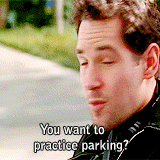Is text messaging murdering our youth’s grammar?
Recent spotlight-shining on this matter claims to show evidence of the contrary.
But I’m not so sure.
A published study that followed kids from primary school to university stated that grammar didn’t poorly effect real-life literacy. My first thought was – I hope these aren’t the same kids, because primary school means age eleven and earlier and phone use a eight years to a decade ago would have been totes diff. See what I did there? Nobody said “totes diff” back in two-thousand-and-pre-social-media-on-a-mass-scale. Much like the evolution of “lol” to “lulz” and the introduction of whatever “bae” means, much of god-awful English use is practiced out of popularity. Like when we’d act stupid in the 90’s during class as if auditioning for the position of class clown

While that’s not what they meant, something still doesn’t sit right with me about this study. And I think it’s this bit:
“The pupils, who did not already use a mobile phone, were split into two groups. Half were given a handset to use for texting over weekends and during the school holidays over a 10-week period. The remaining pupils formed a control group.”
Wait, wait, WAIT a second.
Can we back up here? This part of the study done back in 2011 followed nine and ten-year-olds – who hadn’t used a phone before. By that age, you have basic language skills already ingrained. How can you possibly compare a few months of using a phone for the first time to being handed one at age four so that you STFU when your parents don’t wanna deal with you? Plus we’re missing that whole aforementioned trendy-acronym influence that slowly develops among peers. We need a study that follows the evolution of hooked-on-phones driving kids to hooked-on-phonics. All ten weeks will do is serve as a learning tool for kids via reinforcement – when they see something they know isn’t spelled correctly, they’ll remember better next time. It’s not till later when you get social pressures that the schizophrenia sets in. If you spell it wrong on purpose, it contrasts with proper English. If you use proper English, you might miss out on fitting in.

As for me? Text may not be ruining my grammar, but it is annihilating my spelling. Even now. As an adult. Specifically, autocorrect is a literacy killer for me. Through a sort of learned helplessness, I suddenly can’t recall how many c’s and r’s are in “occurrence” – and while former-me would have done an internal mind game like, “just think that something occurred twice” similar to “double the C and double the S for success”, I don’t really have to now, do I? The only voice happening in my head when I eff up is, “Shhh.. shhh… Mama Siri’s here to spell it for you. Give her a decade and a few updates and she’ll wipe your ass for you too…”
Which reminds me of another variable in this study: laziness. This study misses the mark in the “widely applicable to all mobile users” way due to the fact it was done in the UK. Why’s that matter? Because to apply whatever non-findings this study accomplished to places like ‘murca, is to forget a very important guiding principle in our culture
We can be really lazy anyway when we don’t have money fears motivating us.
Once we added phones in, we were more done than IRL video stores.

There’s a lotta iphone lingo that I simply refuse to learn. And while I still don’t know what things like tl;dr mean, that’s only ’cause I’m ‘murcan and too lazy to look it up.
But I do hope you enjoyed this diatribe.
1 Comment
Velt
i swur on me mum ill bust u’re nose 4 dissin txt m8